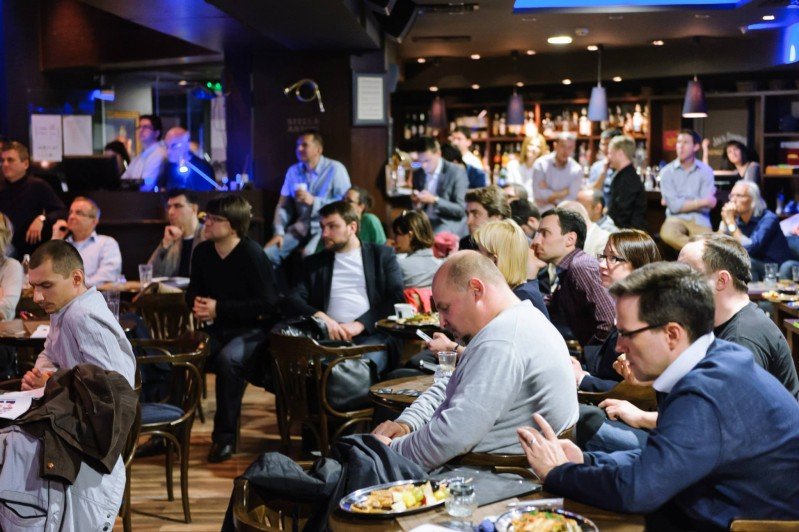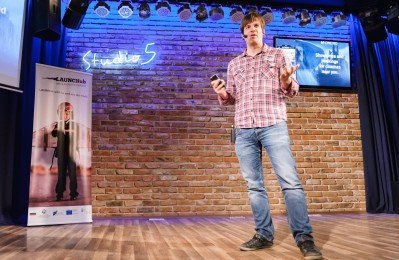It's not always easy to get to Southeastern Europe – and it can be even harder to travel within the region.
Some call it the 'Balkans' or 'West Balkans', however, in some places that term is quite politically incorrect. Either way, the term 'Balkans' for the region originates from the Balkan Mountains, which stretches from east Bulgaria to Serbia.
Mountains are aplenty in this corner of Europe, which is quite the polar opposite of the 'Low Countries' in Europe's northwest. Prosperity and trade have characterized the Low Countries just as the Southeast has been plagued by wars, religious strife and an ever-shifting geopolitical environment.
The mountainous flavour of the region is particularly highlighted by the name of one of the countries – Montenegro, i.e., 'The Black Mountain', as opposed to The Netherlands on the other side of the continent.
Direct flights amongst the various regional capitals – Bucharest, Sofia, Belgrade, Zagreb, Ljubljana and others – are not very economical to operate, so it's common to fly from city to city through Vienna, Munich or Frankfurt.
On the other hand, taking a car, bus or train can be colourful but not very efficient for the enthusiastic startup founder, mentor or investor. There's no super-fast German-style ICE to zip you from city to city every hour on the hour.
The European Investment Fund steps in
Smack in the middle of the region lies Bulgaria.
In 2012, a nuclear bomb of sorts blew up in the country's capital, Sofia. It was around the time when the European Investment Fund (EIF) allocated 21 million euros to two venture funds – Launchub (9 million euros) and Eleven (12 million euros) through the Joint European Resources for Micro and Medium Enterprises (JEREMIE) program.

Although 21 million euros may not sound like much to a high-level private equity fund manager sitting at a corner office in one of the financial capitals of Europe, in this region, it's considered a sizable sum.
To put things into perspective, in all of the countries of the former Yugoslavia, from Slovenia in the northwest to Macedonia in the southeast, there is only one (yes, one!) VC fund: RSG Capital. It operates out of Ljubljana, Slovenia.
Additionally, Launchub and Eleven have invested in more than 100 startups between them, mostly from Bulgaria, of course, but also many teams from Slovenia, Serbia, Croatia, Romania.
As for the co-working landscape, Sofia is one of four European locations for co-working space Betahaus. Run by the 'two Alexes' – Alexander Mihaylov and Alexander Kitov – it has established a position at the center of the tech ecosystem. Another space to meet and work is is SOHO.
There's also Start it Smart, which has evolved into a 'pre-accelerator; program. Key conferences and events in this region include NEXT (coming up on 10 October), DigitalK and the ever-present Startup Weekend.
A look at burgeoning Bulgarian startups
First, let's look at Flipps, which lets you stream content from your mobile device to your TV with no additional hardware and setup. Launched in 2011 and first funded by Launchub, the company recently passed 10 million downloads and scored a $2.4 million Series A investment from a group including Earlybird (based in Germany, covering SEE out of the Istanbul office), Aslanoba (Turkey) and Teres (Bulgaria), as well as high-profile Silicon Valley investor Tim Draper.

Email.io (previously Magin) is – wait for it – an email client for the iPhone. You're probably thinking: "Oh, another one." Well they must be doing something right – and differently – in this overcrowded space to have gotten accepted into Y Combinator as the first Bulgarian project and the third in YC's history to come from another accelerator. One of the co-founders and main developer, Martin Stoyanov, wears a T-shirt proclaiming "I'm 17 now!". Having been 16 when they were accepted, he is officially the youngest founder ever to hit YC.
Having raised $200,000 of seed funding, Viblast offers video content providers new technology to stream large quantities of HD video using peer-to-peer technology. The company believes that "there's nothing illegal about peer-to-peer technology itself", only that it's gotten a bad rep thanks to widespread pirating.
Founders moving around
VetCloud is one of the projects funded by Eleven whose founders are not from Bulgaria but from the region, specifically Serbia. They have since moved to London, having been part of the TechStars London program (disclosure: Its MD, Jon Bradford, is a tech.eu co-founder).
As you might guess from the name, VetCloud is out to push animal care into the cloud. According to co-founder Ivan Vesić, the animal care industry is "bigger than music, games and movies". The company's funding of $800,000 from both accelerator programs should enable the team to help people who help animals go about their noble business.
Money talks, as they say, so, of course, Vesić wasn't the only founder drawn to Sofia from the surrounding region. Several Croatian teams have made the move as well. One of them is Cinexio, a mobile app to help you find, choose and buy tickets from movies in theatres nearby. After having established itself in Bulgaria, Cinexio now plans to expand to Germany and beyond.

Another team migrating from the Balkans to London is Farmhopping, which wants to help city dwellers support faraway farmers. What brings them to London is getting into Seedcamp – in fact, the majority of teams to join after the most recent Seedcamp Week Berlin are from Central and Eastern Europe, among them Oradian – a project "discovered" by this very publication a few months ago.
If you're a game developer, you might want to take a look at the Coherent UI, produced by Coherent Labs. The founders, former MMO developers themselves, want to make designing game interfaces "as easy as building a simple web site", with no programming required.
Then there's Storpool, which wants to redefine the big storage market by offering a software solution to enable customers to use standard drives and servers to create shared storage spaces. Initially backed by Launchub, the company recently raised another funding round but is not disclosing the amount.
These days, many people are watching football dramas played out in Brazil's stadiums. Footballscout is tapping into the global interest for the game with a website localized in Russian, Spanish, Portuguese and Turkish (besides the English default). It offers a platform/social network connecting players, coaches, teams and agents. Footballscout claims almost 600,000 member sign-ups.
We'll round out this list of promising startups with Playground Energy. High-tech but (refreshingly) non-IT, the company manufactures toys for children's playgrounds, which utilize the energy created by using them (rocking, spinning, etc.) to create visual and sound effects with the aim of motivating the kids to use the playground more. Presumably, this is to shift kids from digital screens and towards spending time outdoors with their friends.
More cash coming
The JEREMIE money has been critical for the blossoming of Sofia as a startup hub and more funding is scheduled to come soon. Two new JEREMIE-backed funds are closing, as well as a second fund for New Europe Venture Equity (Neveq).
Between them, the fresh funding could amount to 40 million euros. Some of the players are voicing concern that this could create problems, particularly, that with too much money chasing too few projects it could be easier for "sub-par" companies and founders to raise capital.
Whichever way this plays out, tech.eu will be closely following developments in the ecosystem of the Bulgarian capital.
Feature image credit: Grekov's / Shutterstock Eleven demo day image credit: Courtesy of Eleven Launchub investor day image credit: Courtesy of Launchub



Would you like to write the first comment?
Login to post comments